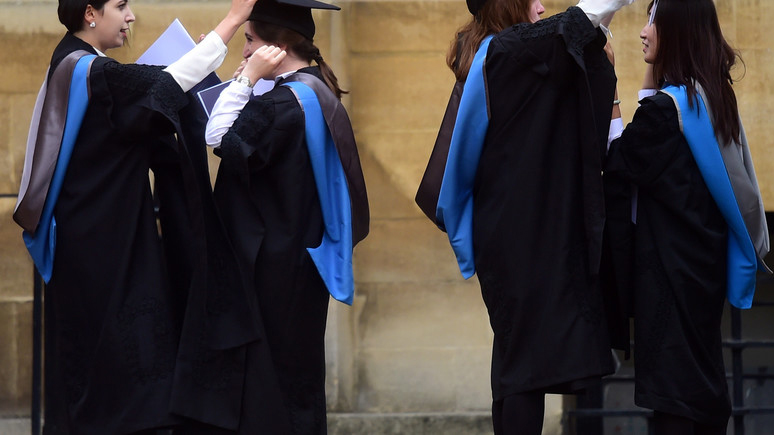
Robohub.org
How artificial intelligence will transform higher education

As AI surpasses human abilities in Go and poker – two decades after Deep Blue trounced chess grandmaster Garry Kasparov – it is seeping into our lives in ever more profound ways. It affects the way we search the web, receive medical advice and whether we receive finance from our banks.
The most innovative AI breakthroughs, and the companies that promote them – such as DeepMind, Magic Pony, Aysadi, Wolfram Alpha and Improbable – have their origins in universities. Now AI will transform universities.
We believe AI is a new scientific infrastructure for research and learning that universities will need to embrace and lead, otherwise they will become increasingly irrelevant and eventually redundant.
Through their own brilliant discoveries, universities have sown the seeds of their own disruption. How they respond to this AI revolution will profoundly reshape science, innovation, education – and society itself.
Deep Mind was created by three scientists, two of whom met while working at University College London. Demis Hassabis, one of Deep Mind’s founders, who has a PhD in cognitive neuroscience from UCL and has undertaken postdoctoral studies at MIT and Harvard, is one of many scientists convinced that AI and machine learning will improve the process of scientific discovery.
It is already eight years since scientists at the University of Aberystwyth created a robotic system that carried out an entire scientific process on its own: formulating hypotheses, designing and running experiments, analysing data, and deciding which experiments to run next.
Complex data sets
Applied in science, AI can autonomously create hypotheses, find unanticipated connections, and reduce the cost of gaining insights and the ability to be predictive.
AI is being used by publishers such as Reed Elsevier for automating systematic academic literature reviews, and can be used for checking plagiarism and misuse of statistics. Machine learning can potentially flag unethical behaviour in research projects prior to their publication.
AI can combine ideas across scientific boundaries. There are strong academic pressures to deepen intelligence within particular fields of knowledge, and machine learning helps facilitate the collision of different ideas, joining the dots of problems that need collaboration between disciplines.
As AI gets more powerful, it will not only combine knowledge and data as instructed, but will search for combinations autonomously. It can also assist collaboration between universities and external parties, such as between medical research and clinical practice in the health sector.
The implications of AI for university research extend beyond science and technology.
Philosophical questions
In a world where so many activities and decisions that were once undertaken by people will be replaced or augmented by machines, profound philosophical questions arise about what it means to be human. Computing pioneer Douglas Engelbert – whose inventions include the mouse, windows and cross-file editing – saw this in 1962 when he wrote of “augmenting human intellect”.
Expertise in fields such as psychology and ethics will need to be applied to thinking about how people can more rewardingly work alongside intelligent machines and systems.
Research is needed into the consequences of AI on the levels and quality of employment and the implications, for example, for public policy and management.
When it comes to AI in teaching and learning, many of the more routine academic tasks (and least rewarding for lecturers), such as grading assignments, can be automated. Chatbots, intelligent agents using natural language, are being developed by universities such as the Technical University of Berlin; these will answer questions from students to help plan their course of studies.
Virtual assistants can tutor and guide more personalized learning. As part of its Open Learning Initiative (OLI), Carnegie Mellon University has been working on AI-based cognitive tutors for a number of years. It found that its OLI statistics course, run with minimal instructor contact, resulted in comparable learning outcomes for students with fewer hours of study. In one course at the Georgia Institute of Technology, students could not tell the difference between feedback from a human being and a bot.
Global classroom
Mixed reality and computer vision can provide a high-fidelity, immersive environment to stimulate interest and understanding. Simulations and games technology encourage student engagement and enhance learning in ways that are more intuitive and adaptive. They can also engage students in co-developing knowledge, involving them more in university research activities. The technologies also allow people outside of the university and from across the globe to participate in scientific discovery through global classrooms and participative projects such as Galaxy Zoo.
As well as improving the quality of education, AI can make courses available to many more people. Previously access to education was limited by the size of the classroom. With developments such as Massive Open Online Courses (MOOCs) over the last five years, tens of thousands of people can learn about a wide range of university subjects.
It still remains the case, however, that much advanced learning, and its assessment, requires personal and subjective attention that cannot be automated. Technology has ‘flipped the classroom’, forcing universities to think about where we can add real value – such as personalised tuition, and more time with hands-on research, rather than traditional lectures.
Monitoring performance
University administrative processes will benefit from utilising AI on the vast amounts of data they produce during their research and teaching activities. This can be used to monitor performance against their missions, be it in research, education or promotion of diversity, and can be produced frequently to assist more responsive management. It can enhance the quality of performance league tables, which are often based on data with substantial time lags. It can allow faster and more efficient applicant selection.
AI allows the tracking of individual student performance, and universities such as Georgia State and Arizona State are using it to predict marks and indicate when interventions are needed to allow students to reach their full potential and prevent them from dropping out.
Such data analytics of students and staff raises weighty questions about how to respect privacy and confidentiality, that require judicious codes of practice.
The blockchain is being used to record grades and qualifications of students and staff in an immediately available and incorruptible format, helping prevent unethical behaviour, and could be combined with AI to provide new insights into student and career progression.
Universities will need to be attuned to the new opportunities AI produces for supporting multidisciplinarity. In research this will require creating new academic departments and jobs, with particular demands for data scientists. Curricula will need to be responsive, educating the scientists and technologists who are creating and using AI, and preparing students in fields as diverse as medicine, accounting, law and architecture, whose future work and careers will depend on how successfully they ally their skills with the capabilities of machines.
New curricula should allow for the unpredictable path of AI’s development, and should be based on deep understanding, not on the immediate demands of companies.
Addressing the consequences
Universities are the drivers of disruptive technological change, like AI and automation. It is the duty of universities to reflect on their broader social role, and create opportunities that will make society resilient to this disruption.
We must address the consequences of technological unemployment, and universities can help provide skills and opportunities for people whose jobs have been adversely affected.
There is stiff competition for people skilled in the development and use of AI, and universities see many of their talented staff attracted to work in the private sector. One of the most pressing AI challenges for universities is the need for them to develop better employment conditions and career opportunities to retain and incentivize their own AI workers. They need to create workplaces that are flexible, agile and responsive to interactions with external sources of ideas, and are open to the mixing of careers as people move between universities and business.
The fourth industrial revolution is profoundly affecting all elements of contemporary societies and economies. Unlike the previous revolutions, where the structure and organization of universities were relatively unaffected, the combinations of technologies in AI is likely to shake them to their core. The very concept of ‘deep learning’, central to progress in AI, clearly impinges on the purpose of universities, and may create new competition for them.
If done right, AI can augment and empower what universities already do; but continuing their missions of research, teaching and external engagement will require fundamental reassessment and transformation. Are universities up to the task?
This article was originally posted on the World Economic Forum. Click here to view the original.
tags: AI, Algorithm AI-Cognition, Artificial Intelligence, c-Politics-Law-Society, cx-Education-DIY, education, opinion, World Economic Forum






